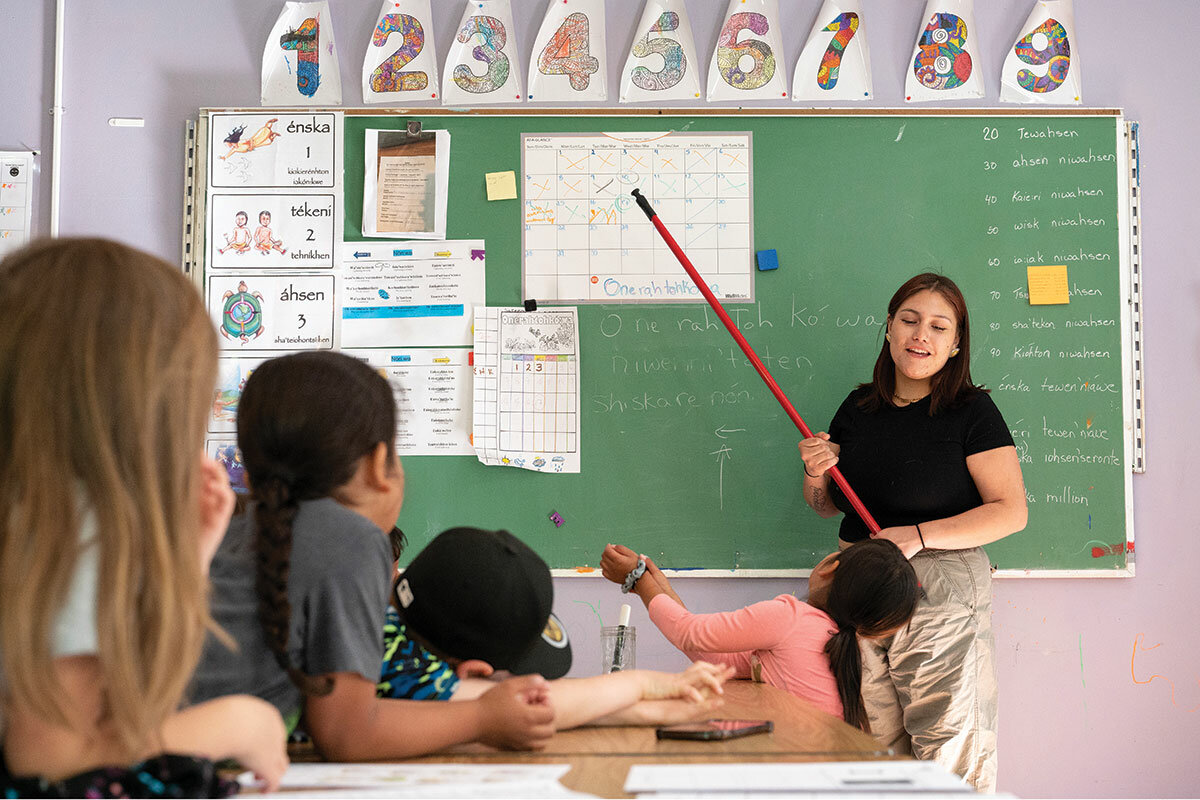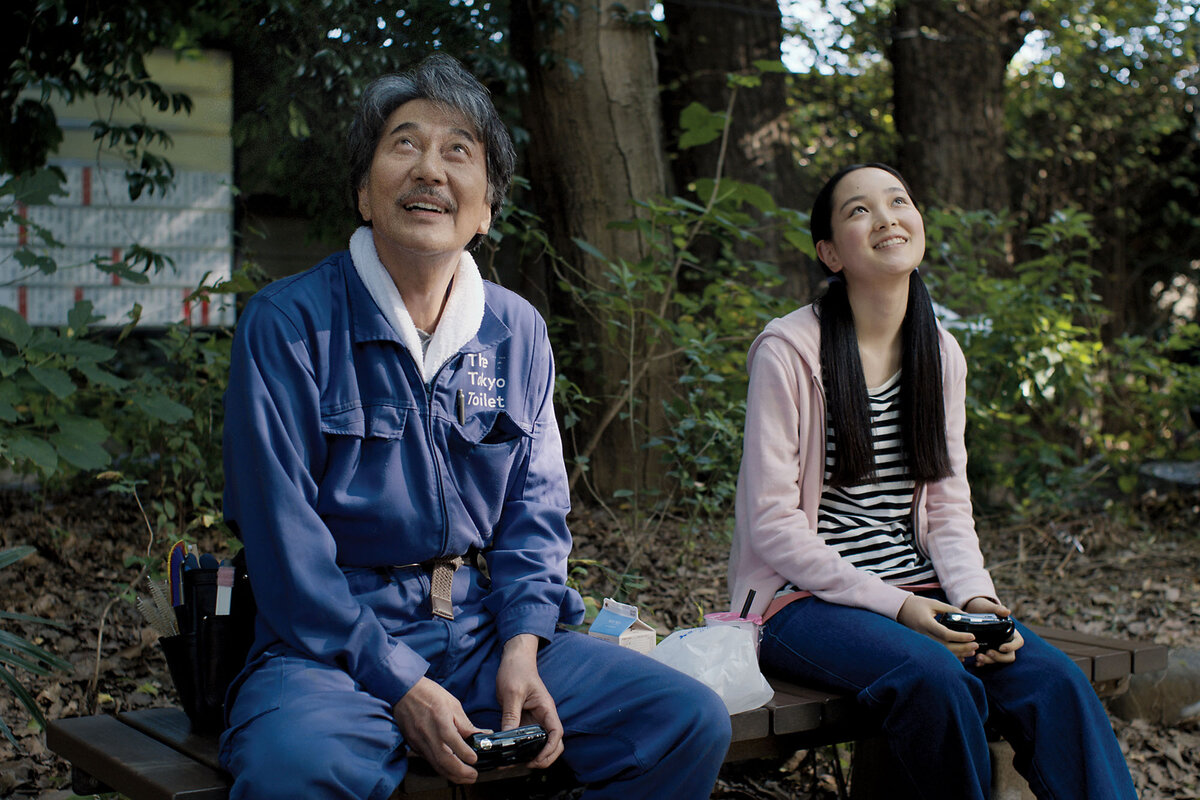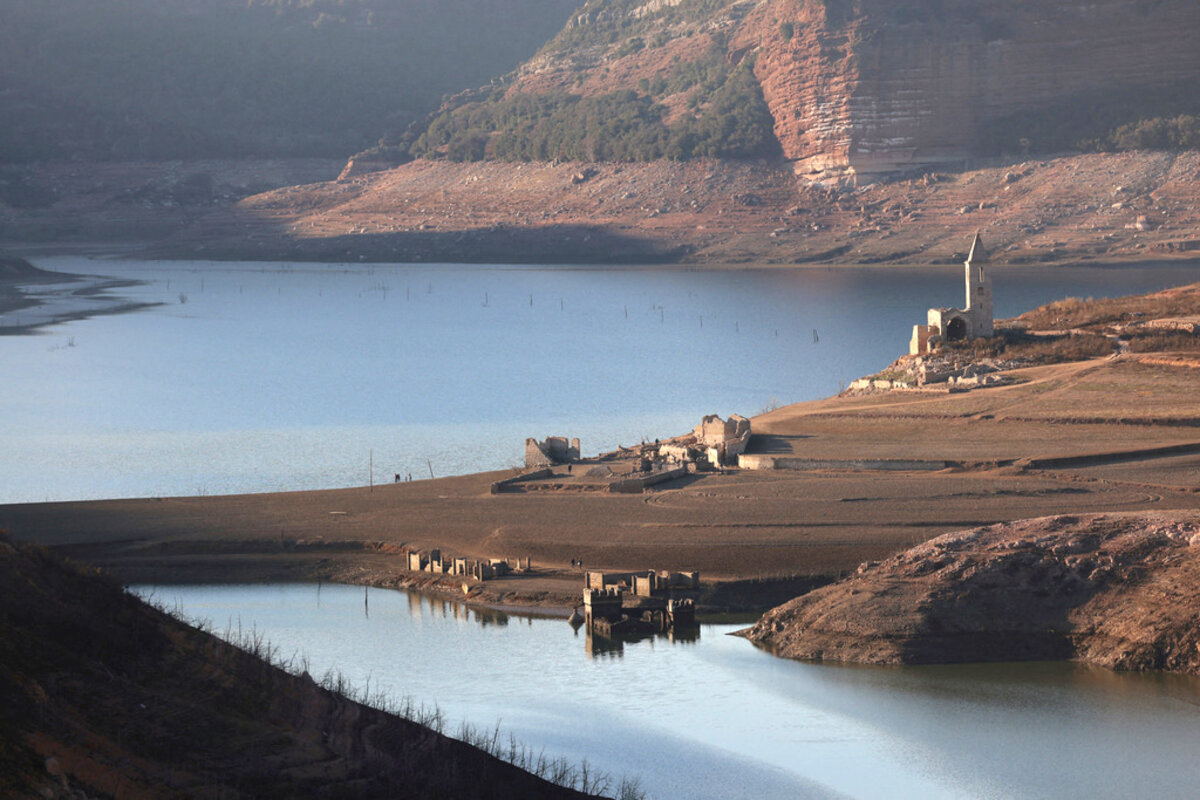With a border security bill looking unlikely to pass, experts say the president can take some steps to stem a surge in crossings. But big policy changes – and funding for them – must come from lawmakers.

Why is Christian Science in our name?
Our name is about honesty. The Monitor is owned by The Christian Science Church, and we’ve always been transparent about that.
The Church publishes the Monitor because it sees good journalism as vital to progress in the world. Since 1908, we’ve aimed “to injure no man, but to bless all mankind,” as our founder, Mary Baker Eddy, put it.
Here, you’ll find award-winning journalism not driven by commercial influences – a news organization that takes seriously its mission to uplift the world by seeking solutions and finding reasons for credible hope.
Explore values journalism About usMonitor Daily Podcast
- Follow us:
- Apple Podcasts
- Spotify
- RSS Feed
- Download
 Amelia Newcomb
Amelia Newcomb
Confidence is a pillar of a well-functioning society – a point powerfully underscored when it starts to crack.
Two stories today drive at the foundational importance of “full trust,” as confidence can be defined. One involves business: The Boeing Co. is scrambling to reassure the public after a series of safety violations that spoke to ethical shortcomings. Another gets at the social fiber that frays when people are forcibly denied a place in their society – and their sense of their value to it.
But both stories also point to the power of prioritizing efforts to regain trust. As one source told staff writer Laurent Belsie, it’s the “grease” that bolsters positive relationships across society.
You can check out more of our ongoing project about trust here: Rebuilding Trust.
Already a subscriber? Log in
Help fund Monitor journalism for $11/ month
Monitor journalism changes lives because we open that too-small box that most people think they live in. We believe news can and should expand a sense of identity and possibility beyond narrow conventional expectations.
Our work isn't possible without your support.
Today’s stories
And why we wrote them
( 6 min. read )
Today’s news briefs
• Michigan shooter’s mother guilty: A jury found Jennifer Crumbley guilty of involuntary manslaughter. Her son used a family gun to kill four students at Oxford High School in 2021.
• U.S. secretary of state tours Middle East: Antony Blinken met with Egyptian leaders to secure a cease-fire in the Israel-Hamas war in exchange for the release of hostages.
• Trump immunity claims rejected: The federal appeals court’s decision sets the stage for additional appeals. It is the second time in two months judges have spurned the argument.
• NCAA athletes can unionize: This will allow players to negotiate over salary and working conditions, including practice hours and travel.
( 5 min. read )
Alongside the Israel-Hamas war in Gaza, Iran’s allies in the region and U.S. forces have engaged in scores of attacks and retaliations. Both the United States and Iran say they want to avert a wider war, but the intensity of the clashes has increased.
( 7 min. read )
Citizens depend on businesses to be truthful, especially around safety. When trust erodes, companies must act quickly or lose customers. That’s the situation U.S. firms Boeing and Cruise face now.
( 3 min. read )
Preserving a treasured language can help sustain a way of life. One school has made that its mission.
On Film
( 3 min. read )
What does it mean to live a life of meaning? “Perfect Days,” directed by Wim Wenders, offers proof that the rhythms of everyday life can resonate when beheld by an artist’s eye, writes the Monitor’s film critic, Peter Rainer.
The Monitor's View
( 3 min. read )
Any democracy fragmenting over political differences might take a lesson from Spain in recent days on how to build unity.
Last week, Prime Minister Pedro Sánchez sustained a political loss when a bill offering amnesty to separatists from the province of Catalonia was voted down in parliament. The blame for the loss went to one of the secessionist parties, Together for Catalonia, or Junts. Some in Spain called for reprisals. But the government has responded instead with compassion.
Spain is experiencing its worst drought in 1,200 years. The effects are direst in Catalonia, which hasn’t seen rain in more than a thousand days and last week declared a state of emergency. Madrid yesterday announced a plan to invest $502 million in new desalination plants in Catalonia and will soon start shipping in water. That follows an earlier decision to forgive $17.5 billion owed by the province to the national government in debt and interest.
The amnesty bill, which has now gone back to committee for further debate, and the drought and debt measures reflect a patient, ongoing effort by the prime minister to heal divisions through “dialogue, generosity and forgiveness,” as he said last November. Mr. Sánchez took office in 2018, just eight months after the Junts held a referendum on Catalonia independence despite a Supreme Court ruling declaring the ballot unconstitutional.
Unlike attempts at reconciliation in other countries with high conflict, his approach has not made forgiveness conditional on terms such as remorse or disclosure. He sees reconciliation as a shared and negotiated outcome between two sides of a dispute. Forgiveness, as many theologians note, is an individual act – “a private and ongoing discipline of mind, heart, and soul,” wrote Loyola Press author Vinita Hampton Wright.
It can also require grace from one side. Forgiveness “can be done not by the one who is more at fault, but by the one who has more mental and spiritual strength,” wrote Stanisław Glaz, a professor at Jesuit University Ignatianum in Kraków, Poland.
The amnesty bill triggered street protests from hundreds of thousands of Spaniards. Carles Puigdemont, the Catalan leader who fled into exile in Belgium following the referendum to avoid arrest, has said Catalonians need not ask for forgiveness because they have done nothing that needs to be forgiven. That has not dissuaded Mr. Sánchez. In 2021, he pardoned nine secessionist leaders jailed for their roles in the separatist bid.
“Almost always to reach an agreement,” he said then, “someone has to take the first step. We are going to rebuild social harmony from respect and regard. We cannot start from scratch, but we can start again. We love you Catalonia.”
Will that soft approach be just the right solvent? As Omar Encarnación, a chaired professor of politics at Bard College in New York, noted recently, support for secession has dropped sharply in Catalonia since 2017 – below 40% in one recent poll.
It “remains unclear that Sánchez can sell amnesty to a very skeptical Spanish public,” Professor Encarnación wrote in Foreign Affairs. But “restoring peace to Catalonia is a step in the right direction.”
A Christian Science Perspective
Each weekday, the Monitor includes one clearly labeled religious article offering spiritual insight on contemporary issues, including the news. The publication – in its various forms – is produced for anyone who cares about the progress of the human endeavor around the world and seeks news reported with compassion, intelligence, and an essentially constructive lens. For many, that caring has religious roots. For many, it does not. The Monitor has always embraced both audiences. The Monitor is owned by a church – The First Church of Christ, Scientist, in Boston – whose founder was concerned with both the state of the world and the quality of available news.
( 4 min. read )
Singing the song of divine Soul’s goodness brings comfort and healing.
Viewfinder

A look ahead
Thanks for joining us today. Tomorrow, staff writer Jackie Valley will shed light on a first-of-its-kind guilty verdict of involuntary manslaughter. The jury found Jennifer Crumbley criminally responsible for a mass shooting by her son, who used a gun his parents bought him.








